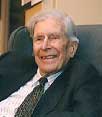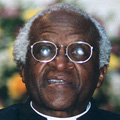 Paul Farmer M.D. Director, Program in Infectious Disease and Social Change, Harvard Medical School; author, Infections and Inequalities: The Modern Plagues; Pathologies of Power: Rethinking Health and Human Rights
Paul Farmer M.D. Director, Program in Infectious Disease and Social Change, Harvard Medical School; author, Infections and Inequalities: The Modern Plagues; Pathologies of Power: Rethinking Health and Human Rights
 John Kenneth Galbraith Warburg Professor of Economics Emeritus, Harvard University; former U.S. Ambassador to India; among his major works: The Affluent Society (1958), The New Industrial State (1967), Economics & The Public Purpose (1973) and The Good Society (1996). His work in progress is The Economics of Innocent Fraud. He received the Presidential Medal of Freedom in 1946 and then again in 2000.
John Kenneth Galbraith Warburg Professor of Economics Emeritus, Harvard University; former U.S. Ambassador to India; among his major works: The Affluent Society (1958), The New Industrial State (1967), Economics & The Public Purpose (1973) and The Good Society (1996). His work in progress is The Economics of Innocent Fraud. He received the Presidential Medal of Freedom in 1946 and then again in 2000.
 Lynn Walker Huntley President, Southern Education Foundation, Inc.; former director, Rights and Social Justice Program, The Ford Foundation; co-editor, Beyond Racism: Race and Inequality in Brazil, South Africa, and the United States.
Lynn Walker Huntley President, Southern Education Foundation, Inc.; former director, Rights and Social Justice Program, The Ford Foundation; co-editor, Beyond Racism: Race and Inequality in Brazil, South Africa, and the United States.
 Archbishop Desmond Tutu A man of immense moral authority, Archbishop Desmond Tutu was one of the leading figures in the fight against apartheid in South Africa and has acted as an unofficial human rights ambassador around the world. Archbishop Desmond Mpilo Tutu was born in 1931 in Klerksdorp in the North West Province of South Africa. Living in England from 1962 to 1966, he worked as a curate and obtained his Master's Degree in Theology. Returning to South Africa, he lectured at the Federal Theological Seminary in the Cape and at the University of Botswana, Lesotho and Swaziland until 1975. Archbishop Tutu was consecrated Bishop of Lesotho in 1976 and became General Secretary of the South African Council of Churches in 1978. In 1984, he was awarded the Nobel Peace Prize in recognition of his nonviolent campaign to limit international trade and investment activities in South Africa. The Archbishop established the Southern African Refugee Scholarship Fund with his Nobel Peace Prize Fund, enabling disadvantaged students to further their studies. He became Bishop of Johannesburg in 1985, and Archbishop of Cape Town and head of the Anglican Church in Southern Africa in 1986. He has received numerous awards, prizes and honorary degrees from all over the world. His publications include Crying in the Wilderness, Hope and Suffering, The Rainbow People of God, and most recently, No Future without Forgiveness. After retiring as Archbishop in 1996, he was chosen by President Mandela to chair South Africa's Truth and Reconciliation Commission and presided over the traumatic revelation of the secrets of apartheid
Archbishop Desmond Tutu A man of immense moral authority, Archbishop Desmond Tutu was one of the leading figures in the fight against apartheid in South Africa and has acted as an unofficial human rights ambassador around the world. Archbishop Desmond Mpilo Tutu was born in 1931 in Klerksdorp in the North West Province of South Africa. Living in England from 1962 to 1966, he worked as a curate and obtained his Master's Degree in Theology. Returning to South Africa, he lectured at the Federal Theological Seminary in the Cape and at the University of Botswana, Lesotho and Swaziland until 1975. Archbishop Tutu was consecrated Bishop of Lesotho in 1976 and became General Secretary of the South African Council of Churches in 1978. In 1984, he was awarded the Nobel Peace Prize in recognition of his nonviolent campaign to limit international trade and investment activities in South Africa. The Archbishop established the Southern African Refugee Scholarship Fund with his Nobel Peace Prize Fund, enabling disadvantaged students to further their studies. He became Bishop of Johannesburg in 1985, and Archbishop of Cape Town and head of the Anglican Church in Southern Africa in 1986. He has received numerous awards, prizes and honorary degrees from all over the world. His publications include Crying in the Wilderness, Hope and Suffering, The Rainbow People of God, and most recently, No Future without Forgiveness. After retiring as Archbishop in 1996, he was chosen by President Mandela to chair South Africa's Truth and Reconciliation Commission and presided over the traumatic revelation of the secrets of apartheid
Paul Farmer M.D. Director, Program in Infectious Disease and Social Change, Harvard Medical School; author, Infections and Inequalities: The Modern Plagues; Pathologies of Power: Rethinking Health and Human Rights
John Kenneth Galbraith Warburg Professor of Economics Emeritus, Harvard University; former U.S. Ambassador to India; among his major works: The Affluent Society (1958), The New Industrial State (1967), Economics & The Public Purpose (1973) and The Good Society (1996). His work in progress is The Economics of Innocent Fraud. He received the Presidential Medal of Freedom in 1946 and then again in 2000.
Lynn Walker Huntley President, Southern Education Foundation, Inc.; former director, Rights and Social Justice Program, The Ford Foundation; co-editor, Beyond Racism: Race and Inequality in Brazil, South Africa, and the United States.
Archbishop Desmond Tutu A man of immense moral authority, Archbishop Desmond Tutu was one of the leading figures in the fight against apartheid in South Africa and has acted as an unofficial human rights ambassador around the world. Archbishop Desmond Mpilo Tutu was born in 1931 in Klerksdorp in the North West Province of South Africa. Living in England from 1962 to 1966, he worked as a curate and obtained his Master's Degree in Theology. Returning to South Africa, he lectured at the Federal Theological Seminary in the Cape and at the University of Botswana, Lesotho and Swaziland until 1975. Archbishop Tutu was consecrated Bishop of Lesotho in 1976 and became General Secretary of the South African Council of Churches in 1978. In 1984, he was awarded the Nobel Peace Prize in recognition of his nonviolent campaign to limit international trade and investment activities in South Africa. The Archbishop established the Southern African Refugee Scholarship Fund with his Nobel Peace Prize Fund, enabling disadvantaged students to further their studies. He became Bishop of Johannesburg in 1985, and Archbishop of Cape Town and head of the Anglican Church in Southern Africa in 1986. He has received numerous awards, prizes and honorary degrees from all over the world. His publications include Crying in the Wilderness, Hope and Suffering, The Rainbow People of God, and most recently, No Future without Forgiveness. After retiring as Archbishop in 1996, he was chosen by President Mandela to chair South Africa's Truth and Reconciliation Commission and presided over the traumatic revelation of the secrets of apartheid

